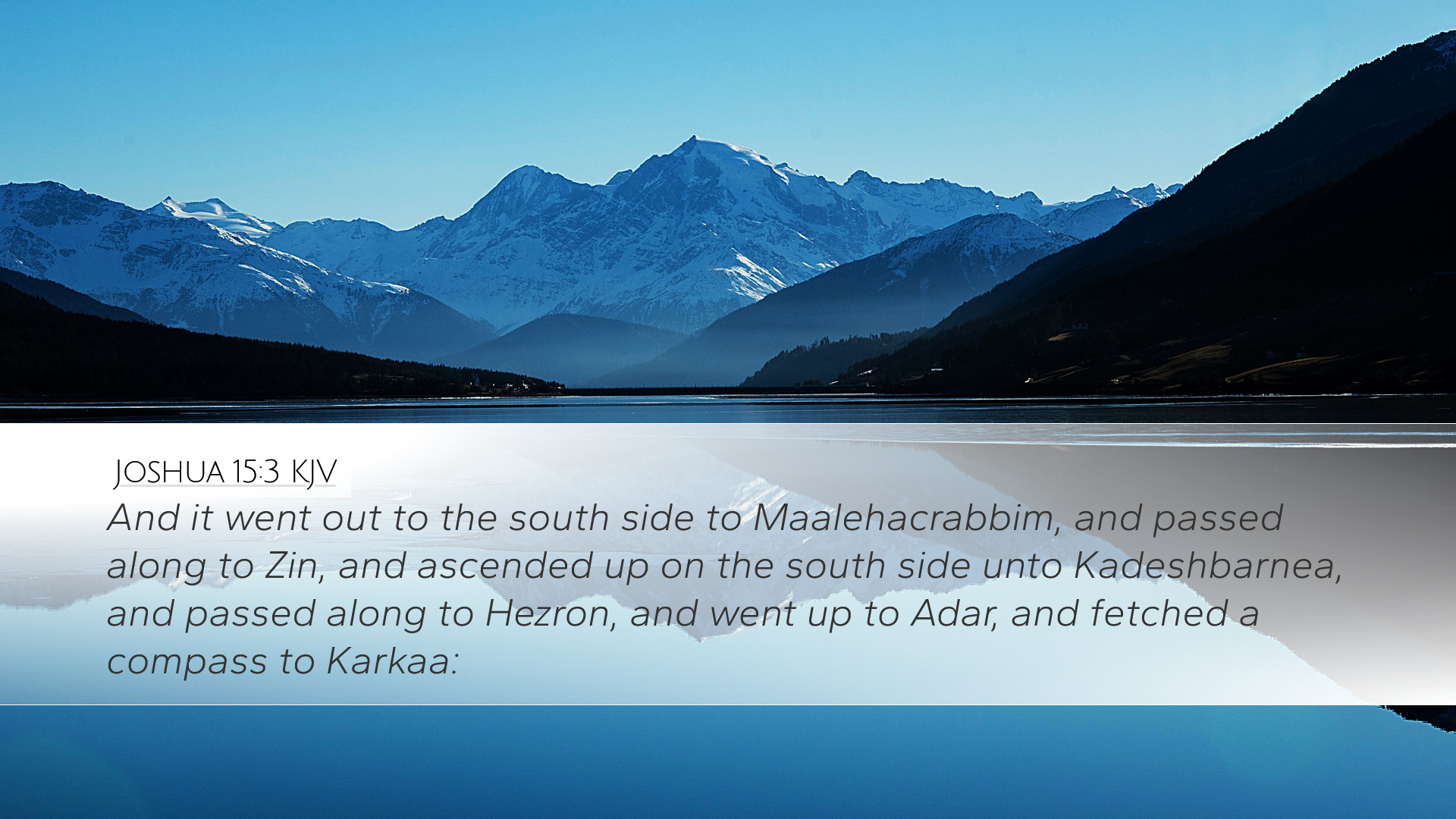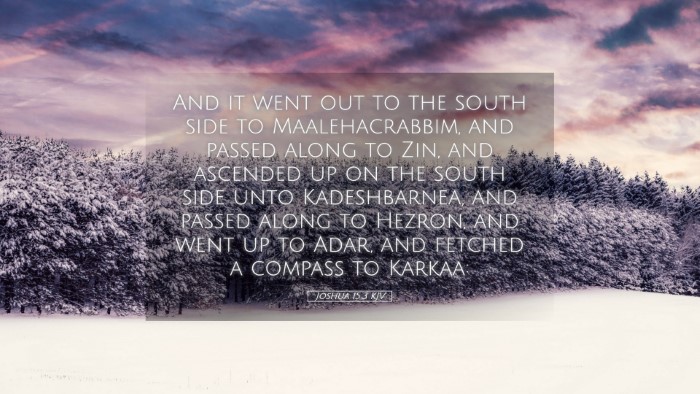Bible Commentary on Joshua 15:3
Introduction:
Joshua 15:3 is a pivotal verse in the narrative of Israel's conquest and division of the Promised Land. This verse highlights the geographical and political boundaries that were important in establishing the inheritance of the tribe of Judah. Understanding this passage provides insights into the faithfulness of God’s promises, the significance of land in biblical theology, and the historical context of Israel’s settlement.
Text of Joshua 15:3
“And it went out to the south of the Salt Sea, to the bay that faces southward.”
Contextual Background
This verse falls within the larger context of the book of Joshua, specifically detailing the distribution of land to the tribes of Israel after their conquest of Canaan. The land is measured and delineated for the tribe of Judah, establishing its borders and influencing its future.
Analysis of the Verse
In this brief verse, several significant insights can be drawn:
-
Geographical Significance:
The mention of the Salt Sea (or Dead Sea) is central as it not only marks a border but symbolizes desolation and also the fulfillment of Israel's territorial promises. This geographical anchor reflects the importance of the land in Israel's identity as a nation.
-
Symbolism of Boundaries:
Boundaries in Scripture often represent God’s sovereignty and order. As the land is divided, God’s promise to grant the Israelites a specific inheritance is being materialized, establishing Judah as a distinct entity within the nation of Israel.
Commentary Insights
The following insights are drawn from various public domain commentators:
1. Matthew Henry's Commentary
Matthew Henry emphasizes the significance of the geographical borders presented in Joshua. He notes how this delineation was not merely for administrative purposes but a divine assignment showing God’s sovereignty in giving the land to His people. The land meant everything in terms of sustenance, identity, and fulfillment of God’s covenant.
2. Albert Barnes' Notes on the Bible
Albert Barnes elaborates on the mentioned "bay that faces southward." He asserts its importance in navigation and trade, providing practical implications for settlement. He presents the notion that this passage illustrates not just a historical moment but a living document that guides the conduct of the Israelite community in their new homeland. He also highlights the importance of Judah's inheritance in prophecy, as it sets the stage for future events in which Judah plays a significant role, including the lineage of David and ultimately Jesus Christ.
3. Adam Clarke's Commentary
Adam Clarke offers a detailed examination of the geographical references in the verse. He provides insights into the topography and historical context, describing how knowing the region's geography aids in understanding Israel's historical battles and territorial claims. Clarke discusses the implications of the region's features, emphasizing how these physical boundaries underscore spiritual truths about God’s promise and His people’s faithfulness in claiming their inheritance.
Theological Implications
From the combined insights of these commentaries, several theological implications arise:
-
Divine Sovereignty:
This verse thoroughly illustrates that God actively governs the affairs of nations and boundaries. His deliberate allocation of land to Judah asserts that inheritance is not merely a matter of human endeavor but a divine gift.
-
Fulfillment of Promise:
This passage serves as a reminder of God’s fidelity to His promises. The fulfillment of territorial promises reassures believers today of God's everlasting faithfulness to His word.
-
Importance of Community Identity:
The delineation of Judah's inheritance reminds us of the significance of community and belonging as ordained by God, which still resonates in the life of the Church as the body of Christ.
Concluding Thoughts
Joshua 15:3, while brief, opens up a window into the heart of God’s plans for His people. The careful detailing of borders invites not only intellectual engagement but also a heartfelt response to God’s sovereignty and faithfulness. For pastors, students, theologians, and Bible scholars, this text underscores the importance of understanding scripture within its historical context and theological implications, facilitating a deeper worship and understanding of God's ongoing engagement with His people.


